
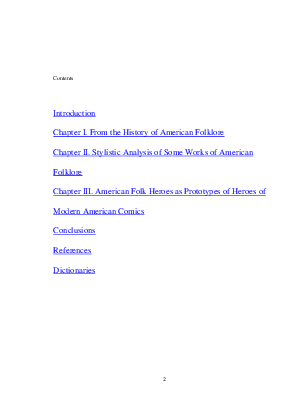
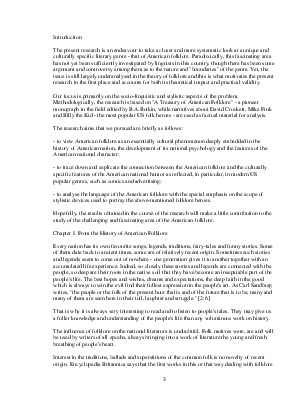
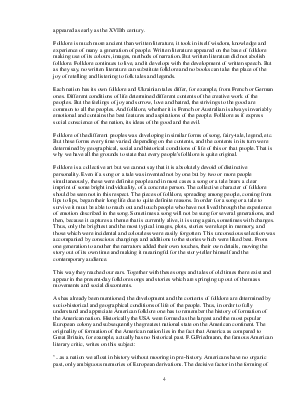
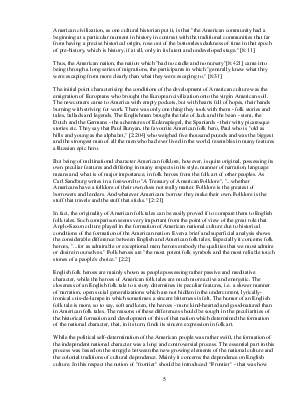
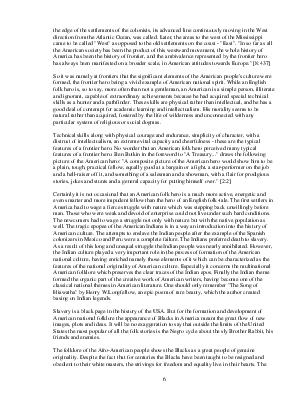
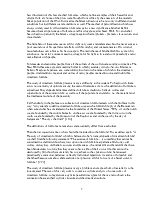
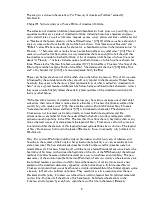
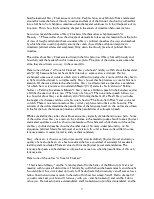
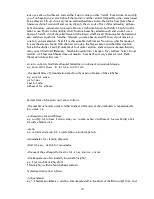
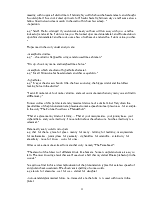
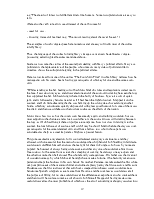
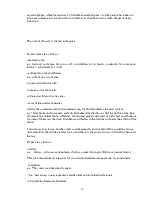

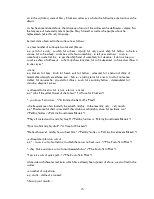
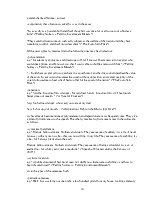
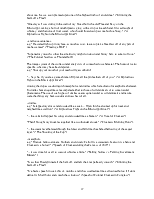
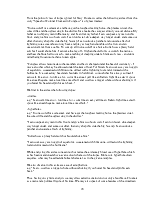
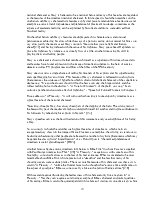
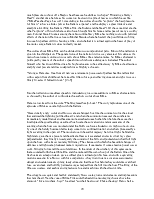
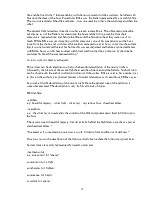
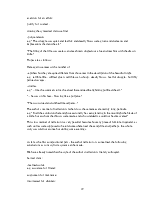
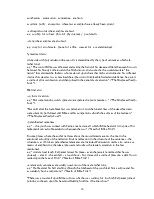
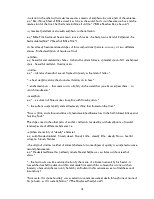
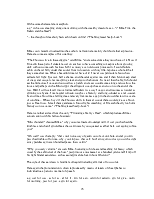
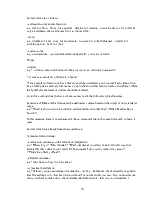
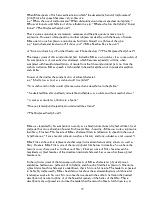
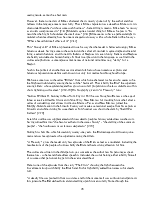
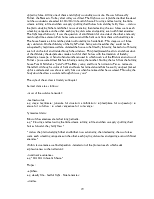
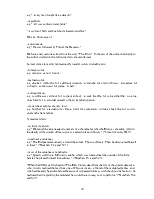
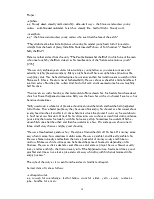
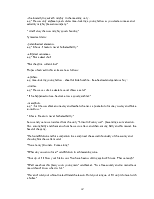
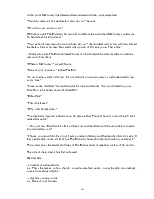
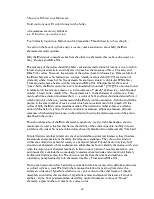
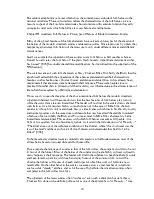
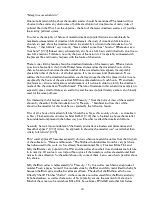
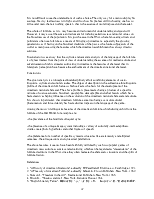
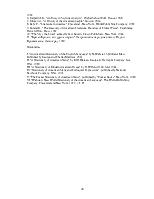
STYLISTIC AND SOCIO-LINGUISTIC ANALYSIS OF AMERICAN FOLKLORE
Contents Introduction Chapter I. From the History of American Folklore Chapter II. Stylistic Analysis of Some Works of American Folklore Chapter III. American Folk Heroes as Prototypes of Heroes of Modern American Comics Conclusions References Dictionaries
Introduction The present research is an endeavour to take a closer and more systematic look at a unique and culturally specific literary genre - that of American folklore. Paradoxically, this fascinating area has not yet been sufficiently investigated by linguists in this country, though there has been some argument and controversy among them as to the nature and "boundaries" of the genre. Yet, the issue is still largely underanalysed in the theory of folklore and this is what motivates the present research in the first place and accounts for both its theoretical impact and practical validity. Our focus is primarily on the socio-linguistic and stylistic aspects of the problem. Methodologically, the research is based on "A Treasury of American Folklore" - a pioneer monograph in the field edited by B.A.Botkin, while narratives about David Crockett, Mike Fink and Billy the Kid - the most popular US folk heroes - are used as factual material for analysis. The research aims that we pursued are briefly as follows: - to view American folklore as an essentially cultural phenomenon deeply embedded in the history of American nation, the development of its national psychology and the features of the American national character; - to trace down and explicate the connection between the American folklore and the culturally specific features of the American national humor as reflected, in particular, in modern US popular genres, such as comics and advertising; - to analyse the language of the American folklore with the special emphasis on the scope of stylistic devices used to portray the above-mentioned folklore heroes. Hopefully, the results obtained in the course of the research will make a little contribution to the study of the challenging and fascinating area of the American folklore. Chapter I. From the History of American Folklore Every nation has its own favourite songs, legends, traditions, fairy-tales and funny stories. Some of them date back to ancient times, some are of relatively recent origin. Sometimes such stories and legends seem to come out of nowhere - one generation gives it to another together with an accumulated life experience. Indeed, so closely these stories and legends are connected with the people, so deep are their roots in the native soil that they have become an inseparable part of the people's life. The best hopes and wishes, dreams and expectations, the deep faith in the good which is always to win the evil find their fullest expression in the people's art. As Carl Sandburg writes, "the people or the folk of the present hour that is and of the future that is to be, many and many of them are seen here in their toil, laughter and struggle." [2:6] That is why it is always very interesting to read and to listen to people's tales. They may give us a fuller knowledge and understanding of the people's life than any voluminous work on history. The influence of folklore on the national literature is undoubtful. Folk motives were, are and will be used by writers of all epochs, always bringing into a work of literature the young and fresh breathing of people's heart. Interest in the traditions, ballads and superstitions of the common folk is no novelty of recent origin. Encyclopedia Britannica says that the first works in this or that way dealing with folklore appeared as early as the XVIIth century. Folklore is much more ancient than written literature, it took in itself wisdom, knowledge and experience of many a generation of people. Written literature appeared on the base of folklore making use of its colours, images, methods of narration. But written literature did not abolish folklore. Folklore continues to live, and it develops with the development of written speech. But as they say, no written literature can substitute folklore and no books can take the place of the joy of retelling and listening to folk tales and legends. Each nation has its own folklore and Ukrainian tales differ, for example, from French or German ones. Different conditions of life determined different contents of the creative work of the peoples. But the feelings of joy and sorrow, love and hatred, the strivings to the good are common to all the peoples. And folklore, whether it is French or Australian is always invariably emotional and contains the best features and aspirations of the people. Folklore as if express social conscience of the nation, its ideas of the good and the evil. Folklore of the different peoples was developing in similar forms of song, fairy-tale, legend, etc. But these forms every time varied, depending on the contents, and the contents in its turn were determined by geographical, social and historical conditions of life of this or that people. That is why we have all the grounds to state that every people's folklore is quite original. Folklore is a collective art but we cannot say that it is absolutely devoid of distinctive personality. Even if a song or a tale was invented not by one but by two or more people simultaneously, these were definite people and in most cases a song or a tale bears a clear imprint of some bright individuality, of a concrete person. The collective character of folklore should be seen not in this respect. The pieces of folklore, spreading among people, coming from lips to lips, began their long life due to quite definite reasons. In order for a song or a tale to survive it must be able to reach out and touch people who have not lived through the experience of emotion described in the song. Sometimes a song will not be sung for several generations, and then, because it captures a theme that is currently alive, it is sung again, sometimes with changes. Thus, only the brightest and the most typical images, plots, stories were kept in memory, and those which were incidental and colourless were easily forgotten. This unconscious selection was accompanied by conscious changings and additions to the stories which were liked best. From one generation to another the narrators added their own touches, their own details, moving the story out of its own time and making it meaningful for the story-teller himself and the contemporary audience. This way they reached our ears. Together with these songs and tales of old times there exist and appear in the present-day folklore songs and stories which are springing up out of the mass movements and social discontents. As has already been mentioned, the development and the contents of folklore are determined by socio-historical and geographical conditions of life of the people. Thus, in order to fully understand and appreciate American folklore one has to remember the history of formation of the American nation. Historically the USA were formed as the largest and the most popular European colony and subsequently the greatest national state on the American continent. The originality of formation of the American nation lies in the fact that America as compared to Great Britain, for example, actually has no historical past. F.G.Friedmann, the famous American literary critic, writes on this subject: "...as a nation we afloat in history without mooring in pre-history. Americans have no organic past, only ambiguous memories of European derivations. The decisive factor in the forming of American civilization, as one cultural historian put it, is that "the American community had a beginning at a particular moment in history in contrast with the traditional communities that far from having a precise historical origin, rose out of the bottomless darkness of time in that epoch of pre-history, which is history, if at all, only in its latent and undeveloped stage." [8:11] Thus, the American nation, the nation which "had no cradle and no nursery"[8:421] came into being through a long series of migrations, the participants in which "generally knew what they were escaping from more clearly than what they were escaping to." [8:31] The initial point characterising the conditions of the development of American culture was the emigration of Europeans who brought the European civilization onto the virgin American soil. The newcomers came to America with empty pockets, but with hearts full of hopes, their hands burning with striving for work. There was only one thing they took with them - folk stories and tales, ballads and legends. The Englishmen brought the tale of Jack and the bean - stem, the Dutch and the Germans - the adventures of Eulenspiegel, the Spaniards - their witty picaresque stories etc. They say that Paul Bunyan, the favourite American folk hero, Paul who is "old as hills and young as the alphabet," [2:204] who weighed five thousand pounds and was the biggest and the strongest man of all the men who had ever lived in the world, resembles in many features a Russian epic hero. But being of multinational character American folklore, however, is quite original, possessing its own peculiar features and differing in many respects in its style, manner of narration, language means and, what is of major importance, in folk heroes from the folk art of other peoples. As Carl Sandburg writes in a foreword to "A Treasury of American Folklore", "...whether Americans have a folklore of their own does not really matter. Folklore is the greatest of borrowers and lenders. And whatever Americans borrow they make their own. Folklore is the stuff that travels and the stuff that sticks." [2:21] In fact, the originality of American folk tales can be easily proved if to compare them to English folk tales. Such comparison seems very important from the point of view of the great role that Anglo-Saxon culture played in the formation of American national culture due to historical conditions of the formation of the American nation. Even a brief and superficial analysis shows the considerable difference between English and American folk tales. Especially it concerns folk heroes, "...for as admirable or exceptional men, heroes embody the qualities that we most admire or desire in ourselves." Folk heroes are "the most potent folk symbols and the most reliable touch stones of a people's choice." [2:2] English folk heroes are mainly shown as people possessing rather passive and meditative character, while the heroes of American folk tales are much more active and energetic. The closeness of an English folk tale to a story determines its peculiar features, i.e. a slower manner of narration, open social generalizations which are not hidden in the undercurrent, lyrically-ironical cuis-de-lampe in which sometimes a sincere bitterness is felt. The humor of an English folk tale is more, so to say, soft and keen, the heroes - more kind-hearted and good-natured than in American folk tales. The reasons of these differences should be sought in the peculiarities of the historical formation and development of this of that nation which determined the formation of the national character, that, in its turn, finds its sincere expression in folk art. While the political self-determination of the American people was rather swift, the formation of the independent national character was a long and controversial process. The essential part in this process was based on the struggle between the new growing elements of the national culture and the colonial traditions of cultural dependence. Mainly it concerns the dependence on English culture. In this respect the notion of "frontier" should be introduced. "Frontier" - that was how the edge of the settlements of the colonists, its advanced line continuously moving in the West direction from the Atlantic Ocean, was called. Later, the areas to the west of the Mississippi came to be called "West" as opposed to the old settlements on the coast - "East". "In so far as all the American society has been the product of this westward movement, the whole history of America has been the history of frontier, and the ambivalence represented by the frontier hero has always been manifested on a broader scale, in American attitudes towards Europe." [8:437] So it was namely at frontiers that the significant elements of the American people's culture were formed, the frontier hero being a vivid example of American national spirit. While an English folk hero is, so to say, more often than not a gentleman, an American is a simple person, illiterate and ignorant, capable of extraordinary achievements because he had acquired special technical skills as a hunter and a pathfinder. These skills are physical rather than intellectual, and he has a good deal of contempt for academic learning and intellectualism. His morality seems to be natural rather than acquired, fostered by the life of wilderness and unconnected with any particular system of religious or social dogmas. Technical skills along with physical courage and endurance, simplicity of character, with a distrust of intellectualism, an extreme vital capacity and cheerfulness - these are the typical features of a frontier hero. No wonder that an American folk hero perceived many typical features of a frontier hero. Ben Botkin in the foreword to "A Treasury..." draws the following picture of the American hero: "A composite picture of the American hero would show him to be a plain, tough, practical fellow, equally good at a bargain or a fight, a star-performer on the job and a hell-raiser off it, and something of a salesman and a showman, with a flair for prodigious stories, jokes and stunts and a general capacity for putting himself over." [2:2] Certainly it is not occasional that an American folk hero is a much more active, energetic and even smarter and more impudent fellow than the hero of an English folk-tale. The first settlers in America had to wage a fierce struggle with nature which was stepping back unwillingly before man. Those who were weak and devoid of enterprise could not live under such hard conditions. The newcomers had to wage a struggle not only with nature but with the native population as well. The tragic epopee of the American Indians is in a way an introduction into the history of American culture. The attempts to enslave the Indian people after the example of the Spanish colonizers in Mexico and Peru were a complete failure. The Indians preferred death to slavery. As a result of this long and unequal struggle the Indian people was nearly annihilated. However, the Indian culture played a very important role in the process of formation of the American national culture, having enriched namely those elements of it which can be characterized as the features of the national originality of American culture. Especially it concerns the multinational American folklore which preserves the clear traces of the Indian epos. Finally the Indian theme formed the organic part of the creative work of American writers, having become one of the classical national themes in American literature. One should only remember "The Song of Hiawatha" by Henry W.Longfellow, an epic poem of rare beauty, which the author created basing on Indian legends. Slavery is a black page in the history of the USA. But for the formation and development of American national folklore the appearance of Blacks in America meant the great flow of new images, plots and ideas. It will be no exaggeration to say that outside the limits of the United States the most popular of all the folk stories is the Negro cycle about the sly Brother Rabbit, his friends and enemies. The folklore of the Afro-American people shows the Blacks as a great people of genuine originality. Despite the fact that for centuries the Blacks have been taught to be resigned and obedient to their white masters, the strivings for freedom and equality live in their hearts. The best illustration of this fact are their folk tales, which are fine examples of their beautiful and original folk art. Some of the plots were brought from Africa by the ancestors of the modern Black population of the USA. In America the Black turned out to be not only in different natural conditions but in different social conditions as well. The method of personification which was always widely used in Afro-American folk tales gains a new significance. Brother Rabbit becomes the main personage of folk tales and his struggle against Bear, Wolf, Fox and other beasts begin to personify the Black's struggle against their exploiters - planters, slave owners and slave traders. The little hero of these tales seems at first sight very weak and defenseless. But he never comes a poor second out of his quarrels and affairs with his mighty and wicked enemies. His wit and resourcefulness serve him as his best weapon. The main theme of Brother Rabbit's cycle is his continuous, never for a moment ceasing struggle for his right to live and work peacefully and to make friends with people. For decades and centuries people from all the corners of the world were coming to America. The New World became a gigantic melting boiler in which yesterday's Anglo-Saxons, Mexicans, Italians, Negroes, Japanese, etc. were turning into fusion, the name of which is the American people. And traditions, legends and stories of many peoples melted into one and indivisible American folklore. The study of American folklore presents many a difficulty to the student. To begin with, there exists no unanimity of opinions among the men of literature as far as the definition of folklore is concerned. Encyclopedia Britannica defines folklore as traditions, ballads, stories and superstitions of the common folk, as well as all the popular arts and crafts, i.e. the material and the intellectual culture of the peasantry. Carl Sandburg in the preface to a collection of American folklore deals with the problem in this way: "Any attempt to define American folklore suggests the folklorish reply of the Kentuckian when asked what he considered to be the boundaries of the United States: "Why, sir on the north we are bounded by the Aurora Borealis, on the east we are bounded by the rising sun, on the south we are bounded by the procession of the Equinoxes and on the west by the day of Judgement." The sky's the limit!" [10:3] The definitions of folklore are numerous and essentially differ from each other. Then the next question arises: what should be included into the folklore? If we address again "A Treasury of American folklore" which is believed to be "an encyclopedia of American folklore" we shall find the following statement: "The essence of folklore ... is something that cannot be contained in a definition but that grows upon one with folklore experience. Old songs, old stories, old sayings, old beliefs, customs and practices - the mindskills and handskills that have been handed down so long that they seem to have a life of their own, a life that cannot be destroyed by print but that constantly has to get back to the spoken word to be renewed; patterned by common experience; varied by individual repetition, inventive or forgetful; and cherished because somehow characteristic or expressive: all this for want of a better word, is folklore." [2:21] The study of American folklore presents many a problem, and a great bulk of material is to be investigated. The task of this very work is to make a stylistic analysis of some works of American folklore, to regard some stylistic peculiarities typical of them, and to observe the connection between their stylistic structure and the American culture. The analysis is done on the material of "A Treasury of American Folklore " edited by B.A.Botkin. Chapter II. Stylistic Analysis of Some Works of American Folklore The collection of American folklore presented in Ben Botkin's book gives us a possibility to get acquainted with many a genre of American folklore, including humorous anecdotes and jests, yarns and tall tales, as well as folk tales, legends, games, songs, pranks and tricks which are said to "breathe of the human diversity of these United States." [2:6] Of all these we have chosen for analysis some stories from the first part of the book, that is, from "Backwoods Boasters" and "Killers" series. We have made such a choice for, as Ben Botkin writes in the introduction to "A Treasury...", "hero tales tell us more about a people than perhaps any other tales." [2:2] Thus it seems to us that the folk hero series in a way determines the face and spirit of all the stuff that the Americans consider to be their folklore. A list of American folk heroes of whose lives and deeds "A Treasury..." narrates includes quite a number of names, of which we have chosen but three. These are the "irrepressible backwoodsman"[2:2] Colonel Davy Crockett, "the Snag of the Mississippi and the Snapping Turtle of the Ohio", "the demigod of the rivers"[2:8] Mike Fink and "a boy bandit king"[2:107], a famous desperado, Billy the Kid. These very heroes are chosen of all the others due to the following reasons. First of all, we were influenced by the consideration that they are still very popular in the present-day United States. Secondly, they seem to be the most typical representatives of what is called "an American folk hero", many a typical feature of different folk heroes being combined in their characters. At last, they seem to more brightly reflect the certain typical qualities of the American national spirit than any other heroes. "If the prevailing rusticity of American folk heroes may be said to constitute one of their chief attractions, then none of them is more attractive than Davy Crockett, the prime example of the country boy who made good," [2:5]- these are the words with which Colonel Davy Crockett, "rude and uncouth but honest and heroic"[2:5] is introduced to the reader. The character of Crockett was not invented, such a person really existed. But his real qualities and life circumstances were rather far from those described in the bulk of stories and legends which gained so much popularity in the USA. The fact that if not from the very beginning then, at any rate, at the later stages of its development the legend of Davy Crockett was a fruit of conscious invention and that the creators of this legend pursued quite definite aims is obvious. The legend of Davy Crockett was born not in the reeds of Kentucky. It was invented by wily politicians in Washington. Davy first got into Washington during Adams' presidency and for four years of idleness and boasting at the counter of the Congress bar gained some popularity as a very eccentric person and a great joker. He but seldom made speeches in the Congress and his speeches were not remarkable at all. Crockett's breaking off with the newly elected President Jackson served as the beginning of his fame. At that time (the beginning of the 30's of the XIXth century) the refined methods in politics became old-fashioned and gave way to roughness and simplicity. The new democracy of the common people broke into Washington. Jackson's victory at the elections gave the political leaders a good lesson which showed the necessity of taking into account a new element of the American democracy appearing on the political stage. In this respect David Crockett, an ignorant backwoods bear hunter, a simple-minded child of the frontier appears quite a treasury for Jackson's political opponents. They used him as a live weapon against the new President and his policy. Crockett was turned into a walking legend. But his political career did not last long. In spite of all the efforts of his benefactors, he failed at the elections to the Congress and, forgotten by everybody, spent the rest of his life in the reed of Kentucky. But the legend of Davy Crockett went on living. People's fancy caught hold of him and created around his name the halo of illusory romance and humor of the frontier, thus having turned him into a folk hero. So it happens sometimes when the legend continues its living irrespective of its inventors. This is how this fascinating chapter in the annals of American hero-making runs. Let us now regard the stories of Davy Crockett's life themselves as represented in "A Treasury...". These stories show the struggle of democratic forces against reaction from the point of view of rough and ignorant backwoodsman. Davy's political speeches, the ways and methods by which he tries to gain popularity among the voters show all the corruption reigning in American political circles and completely bring down the illusory picture of political life in America. The stories about Davy Crockett are written in the first person as if Davy himself proudly and boastfully tells the reader about his numerous exploits. The plots of the stories seem somewhat alike, they are written, so to say, in the same spirit. Here is one of them - "A Vote for Crockett". Davy who feels "mighty wolfish about the head and ears"[2:14] because he has not had a fight in ten days, comes across a stranger. Having exchanged some swear words at which art it is difficult to judge who is more skillful, they begin to fight. And the stranger is so impressed by Davy's power that he promises to vote for him next election. Of the same kind are the other stories. Davy is called to make a speech as a candidate "of which he is as ignorant as an outlandish Negro"[2:17] and talks his rival down ("Telling Stories vs. Talking Government Matters"). Davy makes a brilliant speech in the Congress against a bill that he does not like to pass ("The Story of a Skow"). Then one more speech follows, no less boastful about Davy's extraordinary grin ("Grinning the Bark off a Tree"). Davy swindles the keeper of a shantee and thus wins his voters' hearts ("The Coon-Skin Trick") and so on and so forth. There is no end to numerous Davy's tricky exploits and no limit to his boasting. The contents of the stories determine the peculiarities of the language itself. As the stories are written in the first person, the language preserves all the peculiarities of colloquial speech. While considering the stories about Crockett we may logically divide them into two parts. Some of the stories show Davy as a man, giving a chance to the reader to judge about Crockett physical and mental qualities as well as about some features of his character, while the rest of the stories are Davy's political speeches showing the other side of his many-sided personality, i.e. his eloquence, political foresight and power of conviction. In so far as these stories differ in some language means, it seems logical to analyse them separately. Davy - the man - is shown as a person possessing an extraordinary physical power and many a quality of a real superman. As a backwoodsman he has a good deal of contempt for academic learning and knowledge. The real values for him are physical power and endurance. The language he speaks can be defined as vulgate. Let us see now what the peculiarities of this very language are. Here is one of the stories "A Vote for Crockett". " 'I had taken old Betsy," said he; "and straggled off to the banks of the Mississippi river, and meeting with no game, I didn't like it. I felt mighty wolfish about the head and ears, and thought I would spile if I wasn't kivured up in salt, for I hadn't had a fight in ten days; and I cum across a fellow floatin' down stream settin' in the stern of his boat fast asleep. Said I, 'Hello, stranger! if you don't take keer your boat will run away with you' - and he looked up; and said he, 'I don't value you.' He looked up at me slantendicler, and I looked down upon him slantendicler; and he took out a chaw of turbaccur, and said he, 'I don't value you that.' Said I, 'Cum ashore, I can whip you - I've been trying to git a fight all the mornin'; and the varmint flapped his wings and crowed like a chicken. I ris up, shook my mane, and neighed like a horse. He run his boat plump head foremost ashore. I stood still and sot my triggurs, that is, took off my shirt and tied my galluses tight around my waist and at it we went. He was a right smart coon, but hardly a bait for such a fellur as me. I put it to him mightly droll. In ten minutes he yelled enough, and swore I was a ripstavur. Said I, 'Ain't I the yaller flower of the forest! And I am all brimstone but the head and ears, and that's aquafortis.' Said he, 'Stranger, you are a beauty and if I know'd your name, I'd vote for you next election.' Said I, 'I'm that same David Crockett. You know what I'm made of. I've got the closest shootin' rifle, the best coon dog, the biggest ticlur, and the ruffest racking horse in the district. I can kill more ickur, fool more varmints, and cool out more men than any man you can find in all Kentucky.' Said he,'Good mornin', stranger - I'm satisfied.' Said i, 'Good mornin', sir; I feel much better since our meetin',' but after I got away a piece, I said, 'Hello, friend, don't forget that vote.' " As to its style it is familiar colloquial bordering on vulgate or non-standard usage, e.g. 'know'd' for 'knew', 'ris' for 'rose', 'run' for 'ran' - the peculiarities of pronunciation are shown by means of letters of the alphabet, e.g. 'cum' for 'come', 'git' for 'get', 'keer' for 'care', 'turbaccur' for 'tobacco'. Lexical traits of the given story are as follows: - the number of neutral words is rather limited, while most of the vocabulary is represented by low words, i.e. - colloquial words and phrases, e.g. 'to whip' for 'to beat'; 'I don't value you'; 'to take a chaw of turbaccur'; 'he was hardly a bait for such a fellur as me' - slang, e.g. 'varmint' and 'coon' for 'a smart fellow, a cunning person', 'slantendicler' for 'slanting, diagonal' 'droll' for 'easy', 'ticklur' for 'moustache' - the use of the colloquial form 'ain't' for 'is not', 'are not', 'am not' - the frequent use of an intensifying adverb "mighty" e.g. 'I put it to him mighty droll.' 'I felt mighty wolfish about the head and ears.' Syntactical traits are as follows: - polysendeton, e.g. " 'I had taken old Betsy,' said he, 'and straggled off to the banks of the Mississippi river; and meeting with no game, I didn't like it. I felt mighty wolfish about the head and ears, and thought I would spile if I wasn't kivured up in salt, for I hadn't had a fight in ten days; and I cum across a fellow floatin' down stream settin' in the stern of his boat fast asleep.' " - repetition, e.g. "Said I, 'Hello, stranger! if you don't take keer your boat will run away with you' - and he looked up; and said he, 'I don't value you.' He looked up at me slantendicler, and I looked down upon him slantendicler; and he took out a chaw of turbaccur, and said he, 'I don't value you that.' " Tropes met in the story under analysis are: - metaphoric similes, e.g. " ...the varmint' flapped his wings and crowed like a chicken." "I ris up, shook my mane, and neighed like a horse." - metaphors which are often of hyperbolic character, e.g. "I'm all brimstone but head and ears and that's aquafortis." - hyperboles, e.g. "I've got the closest shootin' rifle, the best 'coon dog, the biggest ticlur and the ruffest racking horse in the district." "I can kill more ickur, fool more varmints, and cool out more men than any man you can find in all Kentucky." In most stories of this part lexical and syntactical traits are of a similar kind. Very often the peculiarities of the pronunciation are presented to make speech more expressive as, for example, in the story "The Colonel Swallows a Thunderbolt": "Thar ar a grate menny kinds of larning. ... Thar ar your mattymattics, your jommytrees, your sighentificks, and your axletrissity. I nose nothin about the other wons, but the axletrissity is a screamer." Here nearly every word is mis-spelt, e.g. 'thar' for 'there', 'grate' for 'great', 'menny' for 'many', 'larning' for 'learning', 'mattymatticks' for 'mathematics', 'jommytrees' for 'geometry', 'sighentifics' for 'scientific', 'axletrissity' for 'electricity', 'nose' for 'know', 'wons' for 'ones'. Or let us take one more extract from another story, namely "The Tame Bear": "The creturs of the forest is of different kinds, like humans. Some is stupid and some is easy to larn. The most knowing cretur that ever I seed war a barr that my darter Pinetta piched up in the woods." So again we find in this extract reproduction of the pronunciation typical for careless speech of an ignorant backwoodsman. We observe misspelling of some words, e.g 'creturs' for 'creatures', 'war' for 'was', 'darter' for 'daughter' - non-standard grammatical forms, i.e. instead of 'are' the form 'is' is used with nouns in the plural, e.g "The creturs of forest is of differrent kinds, like humans. Some is stupid and some is easy to larn.' (Here also the verb 'to learn' is used instead of the verb 'to teach') - 'seed' for 'saw', - 'knowing' instead of 'learned' (e.g. "The most knowing cretur that ever I seed...") The examples of such vulgate speech are numerous and are easy to find in most of the stories told by Davy. Thus, the language of the stories forming Davy's image as a man can be defined as vulgate, possessing certain typical features mentioned above. But let us now take the stories of the second part dealing with Davy's political affairs. Davy as a politician is the representative of the people, who unmasks many sides of politician life in America, shows the corruption reigning in the political circles. Here is an extract from one of the stories "The Coon-Skin Trick" in which Davy narrates how he managed to win his voters' hearts having got ten quarts of whiskey for one and the same coon-skin. "While standing at the bar, feeling sort of bashful while Job's rules and regulations stared me in the face, I cast down my eyes, and discovered one end of the coon-skin sticking between the logs that supported the bar. Job had slung it there in the hurry of business. I gave it a sort of quick jerk, and it followed my hand as natural as if I had been the rightful owner. I slapped it on the counter, and Job, little dreaming that he was barking up the wrong tree, shoved along another bottle, which my constituents quickly disposed of with great good humour, for some of them saw the trick; and then we withdrew to the rostrum to discuss the affairs of the nation. I don't know how it was, but the voters soon became dry again, and nothing would do, but we must adjourn to the shantee; and as luck would have it, the coon-skin was still sticking between the logs, as if Job had flung it there on purpose to tempt me. I was not slow in raising it to the counter, the rum followed, of course, and I wish I may be shot if I didn't before the day was over, get ten quarts for the same identical skin, and from a fellow, too, who in those parts was considered as sharp as a steel trap and as bright as a pewter button. This joke secured me my election, for it soon circulated among my constituents, and they allowed, with one accord, that the man who could get the whip hand of Job Snelling in fair trade, could outwit old Nick himself, and was the real grit for them in Congress. Job was by no means popular; he boasted of always being wide awake, and that any one who could take him in was free to do so, for he came from a stock that, sleeping or waking, had always one eye open, and the other not more than half closed. The whole family were geniuses. His father was the inventor of wooden nutmegs, by which Job said he might have made a fortune, if he had only taken out a patient and kept the business in his own hands; his mother, Patience, manufactured the first white oak pumpkin seeds of the mammoth kind, and turned a pretty penny the first season; and his aunt Prudence was the first to discover that corn husks steeped into tobacco water, would make as handsome Spanish wrappers as ever came from Havana, and that oak leaves would answer all the purpose of filling, for no one could discover the difference except the man who smoked them and then it will be too late to make a stir about it. Job himself bragged of having made some useful discoveries, the most profitable of which was the art of converting mahogany sawdust into cayenne pepper, which he said was a profitable and safe business; for the people have been so long accustomed to having dust thrown in their eyes, that there wasn't much danger of being found out." The style of the story is literary colloquial. Lexical traits are as follows: - learned words, e.g. 'rostrum'; 'to dispose' for 'to toss off'; 'to withdrew' for 'to return'; 'to adjourn' for 'to make an interval', 'constituent' for 'voter' - colloquial words and phrases, e.g. 'to bark up a wrong tree', 'to get a whip hand of smb'; 'to make a stir about smth'; 'to have dust thrown in one's eyes' - most of the words are neutral. Among the syntactical traits polysendenton may be distinguished as the most typical, e.g. "I slapped it on the counter, and Job, little dreaming that he was barking up the wrong tree, shoved along another bottle, which my constituents quickly disposed of with great good humour, for some of them saw the trick; and then we withdrew to the rostrum to discuss the affairs of the nation.' 'I don't know how it was, but the voters soon became dry again, and nothing would do, but we must adjourn to the shantee; and as luck would have it, the coon-skin was still sticking between the logs...' Tropes are as follows: - similes, e.g. '...fellow... who was considered as sharp as a steel trap and as bright as a pewter button.' 'This joke secured me my election, for it soon circulated like smoke among my constituents.' - metaphors, e.g. 'The voters soon became dry again.' '...he... had always one eye opened, and the other not more than half closed.' - a hyperbole of demonic character, e.g. '... the man who could get the whip hand of Job Snelling in fair trade, could outwit Old Nick himself...' We observe also two cases of - antonomasia, e.g. '...his mother, Patience, manufactured the first white oak pumpkin seeds...; and his aunt Prudence was the first to discover that corn husks, steeped into tobacco water, would make as handsome Spanish wrappers as ever came from Havana...' - the colloquial expression 'sort of', e.g. 'While standing at the bar, feeling sort of bashful...' 'I gave it a sort of quick jerk...' It is obvious that in the stories of this part lexical and stylistical means are somewhat different. With the change in the subject of Davy's speeches some changes in the image system are observed. We shall not find there many similes of animal origin. Humour is also somewhat different, i.e. Davy's inexhaustible wit is directed here at the political affairs, e.g. "The voters, seeng my predicament, fell off to the other side, and I was left deserted and alone as Government will be when no longer has any offices to bestow." ("The Coon-skin Trick") I saw as plain as day that the tide of popular opinion was against me and that unless I got some rum speedily I should lose my election as sure as there are snakes in Virginny; and it must be done soon, or even burnt brandy wouldn't save me" ("The Coon-Skin Trick") (In this last sentence we observe also the case of incongruity). Davy - the politician - shows in his speeches the methods by which a candidate gains popularity with his voters, and gives a true picture of elections in America. Any person is considered to be the right man to represent the people in the Congress if he can fool more persons than anybody else, is skillful both in fighting and boasting and can always get whiskey enough to "wet voters' whistles" [2:18] as it is impossible to speak "on such a dry subject as the welfare of the nation" [2:21] until the voters have something to drink. Thus, if to compare Davy's language while talking Government matters to the stories of the first part one cannot but notice the essential difference in language means. In Davy's political speeches the language is quite regular from the point of view of grammar. It is only in rare places that some slight deviations, a certain familiarity with grammar rules are observed. In such cases it seems that Davy only wants to make his speech more expressive. e.g. "Friends, Fellow-Citizens, Brothers and Sisters: On the first Tuesday previous to next Saturday you will be called on to perform one of the most important duties that belong to free white folks - that are a fact." ("Speech of Crockett during the Canvass of 1829") (Here the plural form of the verb 'to be' - 'are' is used instead of 'is' in the singular in the sentence "... that are a fact.") As to the stylistic system of Davy Crockett's series as a whole, the following conclusions can be drawn. As has been mentioned above, the language of most of the stories can be defined as vulgate. It is the language of rude and ignorant people. Davy himself as well as the people whom he represented spoke this very language. Lexical traits observed in the stories are as follows: - a great number of colloquial words and phrases, e.g. 'yarn' for 'a story'; 'to whip' for 'to beat' ; 'tip-top' for 'very good'; 'chap' for 'fellow'; 'to be in a snooze' for 'to be asleep'; 'to make a stir about something'; 'to tell yeas and nays'; 'to give somebody a swere licking', 'to get the whip hand of somebody' for 'deceive'; 'I don't value you'; 'to take a chaw of turbaccur' , 'to bark up the wrong tree' for 'to be deceived', 'to have dust thrown in one's eyes'." - slang, e.g. 'kickers' for 'feet'; 'knob' for 'head'; 'colt' for 'fellow'; 'screamer' for 'a person or thing of remarkable strength, excellence, etc.'; 'horse' - a joking term for 'a man'; 'rod' for 'nonsence'; 'tichler' for 'moustache'; 'gizzard' for 'throat', 'coon' for 'a cunning fellow'; 'slantendicler' for 'slanting, diagonal, askew' - colloquial form 'ain't' for 'is not', 'are not', 'am not', e.g. "Ain't I the yaller flower of the forest!" ("A Vote for Crockett") "...you know I ain't slow..." ("Grinning the Bark off a Tree") - the frequent use of an intensifying adverb 'mighty', in the meaning 'very', 'very much', e.g. "I had come for their votes and if they didn't watch mighty close, I'd get them, too." ("Telling Stories vs.Talking Government Matters") "They all roared out in a mighty laugh" ("Telling Stories vs. Talking Government Matters") "I put it to him mighty droll" ("A Vote for Crockett") "He had, however, mighty few to hear him." ("Telling Stories vs. Talking Government Matters") - colloquial expression 'sort of', e.g. "...it was a sort of cornering in which there was no back-out..." ("The Coon-Skin Trick") "...they broke out into a sort of unconnected chorus." ("The Coon-Skin Trick") "I gave it a sort of quick jerk..." ("The Coon-Skin Trick") Alongside with these lexical traits which have already been spoken of above, we also find in the stories: - a number of vulgarisms, e.g. 'skunk'; 'darned'; 'crooked'; 'Shut up your mouth...'; 'gander-shanked Yankee'; 'cursed'. - conjunction 'that' often ousts adverb 'so', as in the cases: "I was as dry as a powder-horn and that I thought it was time for us all to wet our whistles a little" ("Telling Stories vs. Talking Government Matters") "They couldn't listen to me on such a dry subject as the welfare of the nation until they had something to drink, and that I must treat them" ("The Coon-Skin Trick") Of the most typical syntactical traits the following ones may be singled out: - polysendenton, e.g. "I made many apologies, and tried to get off, for I know'd I had a man to run against who could speak prime, and I know'd, too, that I wasn't able to shuffle and cut with him." ("Telling Stories vs. Talking Government Matters") "... I told them several yarns to get them in a good humor; and having soon dispatched the value of the coon, I went out and mounted the stump without opposition, and a clear majority of the voters followed me to hear what I had to offer for the good of the nation." ("The Coon-Skin Trick") - repetition, e.g. " Said he,'Good mornin', stranger - I'm satisfied.' Said i, 'Good mornin', sir; I feel much better since our meetin' " ("A Vote for Crockett ") 'Says he, halloe stranger, who axed you to crack my lice?' Says I, shut up your mouth...' ("A Riproarious Fight on the Mississippi River") As has already been mentioned, polysendenton and repetition are most frequently met. They give a kind of primitiveness to the speech. The other syntactical stylistic means met in the stories are as follows: - syntactical parallelism, e.g. "Friends, fellow-citizens, brothers and sisters: They accuse me of adultery; it's a lie - I never ran away with any man's wife - that was not willing, in my life. They accuse me of gambling, it's a lie - for I always plank down the cash . Friends, fellow-citizens, brothers and sisters: They accuse me of being a drunkard, it's a d - d eternal lie, - for whisky can't make me drunk." ("Speech of Crockett during the Canvass of 1829") - stylistic inversion, e.g. "A public document I had never seen, nor did I know there were such things; and how to begin I couldn't tell." ("Telling Stories vs. Talking Government Matters") As to the types of the sentences both - periodic sentences, e.g. "Well, I was walking out one night, a few hundred yards from my house, looking carelessly about me, I saw a 'coon planted upon one of the highest limbs of an old tree." ("Grinning the Bark off a Tree") "One day as I was sitting in the stern of my broad horn, the old Tree and Easy, on the Mississippi, taking a horn of midshipman's grog, with a tin pot in each hand, first a draught of whiskey, and then one of river water, who should float down past me but Joe Snag..." ("A Riproarious Fight on the Mississippi River") - and loose sentences, e.g. "He stared right up in my face, as much as to ax leave to pick a breakfast off of any part of me he wanted." ("Treeing a Wolf") "I opened my mouth, so that the axletrissity might run down and hit my hart, to cure it of love." ("The Colonel Swallows a Thunderbolt") The image system of the stories under analysis is of somewhat low character. The humour is also specific, what may be called slapstick, e.g. "Shut up your mouth or your teeth will get sunburnt" "... Says he, if you are a game chicken I'll pick all the pin feathers off of you." ("A Riproarious Fight on the Mississippi River") Among the tropes we distinguish metaphors and similes which are often of metaphoric character. In similes human qualities are compared either to those of wild animals or to some natural phenomena. The use of such types of similes seems quite natural as wild animals and nature were the things any backwoodsman knew best of all. - similes, e.g. "I clapped my arms and crowded like a cock.... Upon this he crooked up his neck and neighed like a stallion." ("A Riproarious Fight on the Mississippi River") "... the varmint flapped his wings and crowded like a chicken." ("A Vote for Crockett") "Then I brought my knuckles together like two thunder clouds." ("Crockett's Morning Hunt"). "... the steam reverberated through the forest and hills like the chafed bellowing of the caged tiger." ("The Shooting of the Cup") - metaphors, e.g. "Friends, fellow-citizens, brothers and sisters: Carroll is a statesman, Jackson is a hero and Crockett is a horse!!" ("Speech of Crockett during the Canvass of 1829") "... it was time for us all to wet our whistles a little." ("Telling Stories vs. Talking Government Matters") "I saw that I had grinned all the bark off, and left the knot perfectly smooth." ("Grinning the Bark off a Tree") "I've had a speech in soak this six months, and it has swelled me like a drowned horse; if I don't deliver it I shall burst and smash the windows." (Speech of Colonel Crockett in Congress") From the point of view of tropes typical for Davy Crockett's series the following extract from the story "Speech of Colonel Crockett in Congress" is of great interest: "In one word I'm a screamer, and have got the roughest racking horse, the prettiest sister, the surest rifle and the ugliest dog in the district. I'm a leetle the savagest crittur you ever did see. My father can whip any man in Kentucky, and I can lick my father. I can outspeak any man on this floor, and give him two hours start. I can run faster, dive deeper, stay longer under, and come out drier, than any chap this side the big Swamp. I can outlook a panther and outstare a flash of lightning, tote a steamboat on my back and play at rough and tumble with a lion, and an occasional kick from a zebra. To sum up all in one word I'm a horse. Goliah was a pretty hard colt but I could choke him. I can take the rag off - frighen the old folks - astonish the natives - and beat the Dutch all to smash - make nothing of sleeping under a blanket of snow - and don't mind being frozen more than a rotten apple. "Congress allows lemonade to the members and has it charged under the head of stationary - I move also that whiskey be allowed under the item of fuel. For bitters I can suck away at a noggin of aquafortis, sweetened with brimstone, stirred with a lightning rod, and skimmed with a hurricane. I've soaked my head and shoulders in Salt River, so much that I'm always corned. I can walk like an ox, run like a fox, swim like an eel, yell like an Indian, fight like a devil, spout like an earthquake, make love like a mad bull, and swallow a nigger whole without choking it if you butter his head and pin his ears back.." We find in the extract the following tropes: - similes, e.g. "I can walk like an ox, run like a fox, swim like an eel, yell like an Indian, fight like a devil, spout like an earthquake, make love like a mad bull..." - hyperboles, e.g. " In one word I'm a screamer, and have got the roughest racking horse, the prettiest sister, the surest rifle and the ugliest dog in the district." "I can outspeak any man in this floor and give him two hours start. I can run faster, dive deeper, stay longer under, and come out drier, than any chap this side the big Swamp. I can outlook a panther and outstare a flash of lightning. "Goliath was a pretty hard colt but I could choke him." "I can suck away at a noggin of aquafortis, sweetened with brimstone, stirred with a lightning rod and skimmed with a hurricane." While analysing this extract one cannot but notice the extremely broad use of hyperbole which, as has been mentioned above, even colours the rest of the tropes. More to it, hyperbole often acquires, what may be called diabolical character, as in the given examples. We also observe in this extract a case of etnophalism, e.g. "I can... swallow a nigger whole without choking if you butter his head and pin his ears back." Thus, basing on stylistic analysis we may draw certain conclusions not only about Dave Crockett as a man and a political figure of his time. We may also speak of some features of the American national character as Davy is believed to be a national hero and many of his features are regarded as the features of the American national character. In this respect it should be noted that, on the one hand, such Davy's characteristic features as physical power and endurance, fearlessness and enterprise, even a kind of impudence and preference for practical knowledge, sometimes at the expense of academic learning, can be explained by historical conditions, were derived from historical reality. On the other hand, such Davy's features are displayed as his shamelessness and unusual persistence at achieving his aims, while the ways of a person's acting do not matter for him, so to say, aims justify the means used. Davy's motto is "Be sure that you are right and then go ahead"[2:7] and having imbued with the sense of his rightness, Davy goes ahead. He prefers to prove his rightness by violence - at a time by fists or a rifle, another time using his skill in playing tricks and fooling people. Davy as a character is shown or rather manifests himself as a superman of his time whose traits and features have found expression in the image of American superman - the hero of comics, detective stories, TV programmes and films of the 60ies of the XXth century. Davy does not miss a single chance of telling his listeners of his exploits and his superboasting and superbragging have no limits. This feature of Davy's character is reflected in such stylistic phenomena as the wide use of hyperbole which is often of diabolical character; of the superlative degree (e.g. "I've got the closest shootin' rifle, the best 'coon dog, the biggest ticlur, and the ruffest raching horse in the district." - "A Vote for Crockett"); of the prefix 'out' (e.g. "I can outlook a panther and outstare a flash of lightning." - "Speech of Colonel Crockett in Congress'). If we address to "A Treasury..." it will turn out that boasting is looked upon by Americans as a typical feature of the national character: "Boasting - the epic brag - has always been part of the trapping of the hero. The strong man of the Beowulf type or the medieval knight would gird himself for combat and inspire confidence in his followers by rehearsing his exploits in big talk." [2:3] Davy's speeches serve as the best illustration of this statement, every second phrase of his being a brag. So, to sum up, it should be said that such typical features of Americans, which are in an exaggerated way shown in the image of Dave Crockett, as enterprise, the striving to stand out, to be distinguished among other people are reflected in a number of stylistic phenomena which may be generalized as stylistic "intensification" or, as Horwill puts it, "the marked preference of American taste for grandiloquent." [III:23] Another famous figure among American folk heroes is Mike Fink "in whom Casanova together with Paul Bunyan merges into Thor." [2:8] "A Treasury..." acquaints us with some facts of his biography, so no doubt arises as to the fact of his real existence. What is considered to be most remarkable about Mike Fink is his reputation of a "deadshot" and the fact that many of his shooting wagers were sadistic pranks. The most notable feature of his character was that, as it is said in "A Treasury...", "unlike the frontier rascals who thought that "even a crime might take on the aspect of good joke," Mike was one to carry a Joke to the point of being a crime".[2:8] Of thousands legends illustrating the fearlessness of his character only five are given in "A Treasury..." Yet, they serve quite a convincing example of Mike's character and moral qualities, of his actings. Mike is said to be quite impartial in his choice of victims. At one time it gives him much pleasure to shoot off a Negro's heel because he dislikes its shape ("Trimming a Darky's Heel"); another time he forces his woman to lie down in a pile of leaves to which he set fire ("Mike Teaches Peg a Lesson"). According to the stories about his "exploits" the best pleasure for him is "to have a little sport at the Indians' expense" and he displays a great initiative and enterprise in killing the Indians ("Mike Fink, the Indian and the Deer"). Of the same kind are the other "exploits" of his which are said to have brought him his fame and respect of many a worthy men, Colonel Dave Crockett among them. But unlike Davy Mike has nothing to do with political affairs of the nation. He lives close to Mother Nature where he had all the possibilities to bring into use his perfect skill in shooting a rifle - and whether it is turned against the beast of prey or the more savage Indian, it does not really matter. The stories about Mike Fink can be divided into two compositional parts. Most of the narration is given in the third person. The general tone of the narration is in a way elevated. It is done as if a man whose name is unknown to us tells about Mike's life and adventures. So Mike's character is portrayed by means of the author's speech into which some dialogue is included. The author himself who has known Mike since his boyhood seems to be carried away by Mike's fearlessness and physical power and tries to depict him as brightly as he can. "Strong as Hercules, free from all nervous excitement, possessed of perfect health and familiar with weapon from childhood, he raised his rifle to his eye and having once taken sight, it was as firmly fixed as if buried in rock." [2:35] Into the narration some direct speech is included to give some additions to Mike's characteristic as showed by the author or to illustrate the author's words about Mike. Here is an extract from the store "The Disgraced Scalp-Lock." The story reproduces one of the episodes of Moke's severe fight with the Indians. "Occasionally angry words and blows were exchanged, but, like the summer storm, the cloud that emitted the lightning purified the air; and when the commotion ceased, the combatants immediately made friends and became more attached to each other than before the cause that interrupted the good feelings occurred. Such were the conversation and amusements of the evening when the boat was moored under the bluffs we have alluded to. As night wore on, one by one of the hardly boatmen fell asleep, some in its confined interior, and others protected by a light covering in the open air. The moon arose in beautiful majesty; her silver light, behind the highlands, gave them a power and theatrical effect as it ascended; and as its silver rays grew perpendicular, they finally kissed gently the summit of the hills, and poured down their full light upon the boat, with almost noonday brilliancy. The silence with which the beautiful changes of darkness and light were produced make it mysterious. It seemed as if some creative power was at work, bringing form and life out of darkness. In the midst of the witchery of this quiet scene there sounded forth the terrible rifle, and the more terrible war-whoop of the Indian. One of the flat-boatmen, asleep on deck, gave a stifled groan, turned upon his face, and with a quivering motion ceased to live. Not so with his companions - they in an instant, as men accustomed to danger and sudden attacks sprang ready-armed to their feet; but before they could discover their foes, seven sleek and horribly painted savages leaped from the hill into the boat. The firing of the rifle was useless, and each man singled out a foe and met him with the drawn knife. The struggle was quick and fearful; and deadly blows were given amid screams and imprecations that rent the air. Yet the voce of Mike Fink could be heard in encouraging shouts above the clamour. "Give it to them, boys!" he cried, "cut their hearts out! Choke the dogs! Hero's hell a-fire and the river rising!" then clenching with the most powerful of the assailants, he rolled with him upon the deck of the boat. Powerful as Mike was, the Indian seemed nearby a match for him. The two twisted and writhed like serpents, - now one seeming to have the advantage and then the other. The general fight lasted less time than we have taken to describe it. The white men gained the advantage; two of the Indians lay dead upon the boat and the living, escaping from their antagonists, leaped ashore, and before the rifle could be brought to bear they were out of its reach. While Mike was yet straggling with his antagonist, one of his companions cut the boat loose from the shore, and, with powerful exertion managed to get its bows so far into the current, that it swung round and floated; but before this was accompanied and before anyone interfered with Mike, he was on his feet covered with blood and blowing like a porpoise: by the time he could get his breath, he commenced talking." As to its style it is literary colloquial. This extract can be divided into two parts: the beautiful description of the moony night is followed by the picture of the severe fight between the white men and the Indians. Such division can be observed in the author's narration in almost all the stories. Mike is said to have nature, just to prove it the author gives poetical pictures of natural landscapes as if seen through Mike's eyes. Let us take first thr description of the moony night. Here the general tone of the narration is somewhat elevated. The description is very rich in all kinds of tropes. We find here: - epithets, e.g. 'beautiful majesty', 'silver light', 'silver rays', 'mysterious boat', 'theatrical effect'. - metaphors, e.g. ':the silver rays kissed gently the summit of the hills and poured down their full light upon the boat 'The moon arose in beautiful majesty; her silver light, behind the highlands, gave them a power and theatrical effect..." "It seemed as if some creative power was at work, bringing form and life out of darkness". If we pass now to the description of the fight we shall observe there the following typical traits: Lexical traits are mainly represented by neutral words and - learned words, e.g. 'antagonist" for "enemy"; 'commotion' for 'a fight'; 'combatants' for 'fighters'; 'commence' for 'begin'; 'assailant' for 'enemy'; 'exertion' for 'an effort'; 'purify' for 'to clear'. Among the syntactical traits we find - polysendeton, e.g. "The struggle was quick and fearful; and deadly blows were given amid screams and imprecations that rent the air." "The firing of the rifle was useless, and each man singled out a foe and met him with the drawn knife." Tropes are as follows: Here again we meet with a number of - epithets but they are quite different from those met in the description of the beautiful night, e.g. ' terrible rifle', 'stiffled groan', 'terrible war-whoop', 'deadly blows', 'fearful struggle', 'horribly painted savages'. - similes, e.g. "... like the summer storm, the cloud that emitted the lightning purified the air." "... he was on his feet... blowing like a porpoise." "The two twisted and writhed like serpents..." The author' s manner of narration is rather slow, the sentences are mainly long, periodic, e.g. "In all the confusion there might occasionally be seen glancing in the moonlight the blade of a knife but at whom the thrusts were made, and who wielded it, could not be discovered." This slow manner of narration is a very peculiar feature about any piece of folklore in general, as such stories were supposed to be told somewhere near the camp-fire and, perhaps, the whole story was told not at once but during some evenings. As far as the first compositional part - the author narration - is concerned, the following conclusions as to its stylistic system can be made. We have already noted that the style of the author's narration is literary colloquial. Lexical traits: - learned words, e.g. 'associate' for 'friend'; 'cognomen' for 'nickname'; 'intoxicated' for 'drunken'; 'combatants', 'commotion', 'commence', 'exertion', 'assailant', purify', 'antagonist', (these last examples have already been given). - colloquial words (the examples are few). e.g. 'to whip' for 'to beat; 'phiz' for 'physiognomy', 'poor devils'. - slang (the examples are also few), e.g. 'snag' for 'an obstacle', 'piece' for 'a rifle', 'weazel' for ' a scandalmonger'. Syntactical traits: Alongside with polysendeton (the use of it is determined by the type of sentences which are rather long) e.g. "The soul of Mike was affected, and taking the hand of his deceased friend between his own, he raised his bloody knife towards the bright moon, and swore that he would desolate "the nation" that claimed the Indians who made war upon them that night, and turned to his stiffened victim, that, dead as it was, retained the expression of implacable hatred and defiance, he gave it a smile of grim satisfaction, and then joined in the general conversation" ("The Disgraced Scalp-Lock"), We find also: - stylistic inversion, e.g. "Nor were launting words spared to exasperate the poor creatures..." ("The Disgraced Scalp-Lock"). "Not until after the rude breakfast was partaken of, and the funeral rites of the dead boatman were solemnly performed, did Mike and his companions disturb the corpses of the red men." ("The Disgraced Scalp-Lock") - parenthetical sentences, e.g. "... the youth was twitted with being a mere slave all which (Mike heard of it in spite of his retirement) served to breed distrust between the two." ("Death of Mike Fink") In some places where the author narrates about the most dramatic events, the rise in the emotional colouring of the narration finds its reflection in the structure of the sentences - the structure is as if broken, parenthetical elements are included. Punctuation marks also serve as a means of emphasizing the idea expressed and to draw the reader's attention to the fact mentioned. e.g. "Amid a loud laugh, Carpenter raised his piece - even the jesters remarked that he was unsteady, - crack! - the can fell, - a loud shout, - but, instead of a smile of pleasure, a dark frown settled upon the face of Fink!" ("Death of Mike Fink") - exclamatory sentences are widely used, most of them are rather long, e.g. "He fired and his ball crashing through the forehead of the youth laid him a corpse and his, as suddenly husk, companions!" ("Death of Mike Fink") "There was a loud call upon Mike to know what he was waiting for, in which Carpenter joined, pointing to the can upon his head and bidding him fire, if he knew how!" - isolation is the other stylistic device used as a means of emphasizing some part of the sentence, e.g. "Peg, through fear of Mike stood it as long as she could, but it soon became too hot, and she made a run for the river, her hair and clothing all on fire." ("Mike Teaches Peg a Lesson") - syntactical parallelism also adds emphasis to the narration, e.g. "Mike Fink had never been known to miss his aim - he had grown afraid of Carpenter - he had murdered him!" ("Death of Mike Fink") As has already been mentioned tropes of this compositional part are, so to say, of two different classes. In the description of nature we find: - epithets, e.g. 'beautiful and undulating shores', 'rich and luxuriant foliage', 'splendid spoon-bill', 'enchanted spots', 'beautiful mallard', 'floating mists'. - similes, e.g. "...islands as beautiful, asever figured in poetry as the land of faires." "...a bear stepping along the ground as if dainty on its feet." "...enchanted spots ... that seem to sit so lightly on the water that you almost expect them ... to vanish into dreams." - metaphors, e.g. "... a column of blue smoke struggling with floating mists." "... the current swept rapidly and carried every thing that floated on the river." "It was spring, and a thousand tints of green developed themselves in the half-formed foliage and bursting buds." The tropes, met in the other parts of author's narration not dealing with descriptions of natural landscapes are of different character, i.e. - epithets are mainly of "deadly" character, e.g. 'cold-blooded murder', 'bloody deed', 'bloody knife', ' deadly rifle', 'deadly blows', 'fearful struggle', 'bloody blanket'. - the origin of similes is either of animal character or some object or quality is compared to some natural phenomenon, e.g. "He declared himself as perfectly miserable and helpless as a wild cat without teeth or claws." "... the last insult was like seizing the lion by the mane, or a Roman senator by his beard - it roused the slumbering demon within, and made him again thirst to resent his wrongs with an intensity of emotion that can only be felt by an Indian (in this sentence we also find the case of incongruity). "Its muzzle, if it spoke hostilely was as certain to send a messenger death through one or more of his pursuers, as if it were lightning." ("The Disgraced Scalp-Lock") Of the same character are metaphors, e.g. "As he was creeping along one morning, with the stealthy tread of a cat..." ("Mike Fink, the Indian and the Deer") "... the thought of treachury had set his heart on fire" ("The Disgraced Scalp-Lock") Mike's own remarks inserted into the author's narration are mainly short but rather expressive. Here are some examples of his utterings: "The Chostaws live in these diggins," said Mike, "and a cursed time they must have of it. Now if I lived in these parts, I'd declare war on 'em Just to have something to keep me from growing dull; without some such business I'd br as musty as an old swamp moccasin. I could build a cabin on that ar hill yonder that could, from its location, with my rifle, repulse a whole tribe if they came after me. What a beautiful time i'd have of it! I never was particular about what's called a fair fight; I just ask half a chance, and the odds against me, and if then I don't keep clear of snags and sawyers, let me spring a leak and go to the bottom. It's natur that the big fish should eat the little ones. I've seen trout swallow a perch, and a cat would come along and swallow the trout, and perhaps on the Mississippi, the alligators use up the cat, and so on to the end of the row. Well, I will walk tall into varmint and Indian; it's a way I've got, and it comes as natural as grinning to a hyena. I'm a regular tornado, tough as a hickory, and long-winded as a nor'-wester. I can strike a blow like a falling tree and every lick makes a gap in the crowd that lets in as acre of sunshine... Whew, boys! if the Chostaw divils in them ar woods thare would give us a brusk, just as I feel now, I'd call them gentlemen. I must fight something, or I'll catch the dry rot-burnt brandy won't save me." ("The Disgraced Scalp-Lock") Here is another extract from the story "Trimming a Darky's Heel", which reproduces Mike's conversation with his fellow-boatmen: "Miss thunder!" shouted Mike, "why you consarned corn-dodger mill, if war you that had the trimbles, and when I gin old Bets the wakin' tetch, you squatted es ef her bark war agoing to bite you!" "Oh, well," was the reply, "thar's mor'n one way of gettin' out of a skunk hole, and ef you kin pass the trimbles off on me, why, you kin pass, that's all; but I ain't goin' to trust you with a sight at my paddles agin at an hundred paces, that's sartin." "Why, you scary varmint," answers Mike, bouncing to his feet and reaching for Betsy, which stood by the cabin door of the boat," jest pint out a muskeeter, at a hundred yards and I'll nip off his right hinder eend claw, at the second jint afore he kin hum Oh, don't!" The style of these extracts is familiar colloquial including all kinds of low words. Here again the pronunciation is often reproduced by means of letters of the alphabet to individualize a person's manner of speech, e.g. 'war' for 'was', 'es' for 'as', 'ef' for 'if', 'kin' for 'can', 'sartin' for 'certain', 'gin' for 'give', 'morn' for 'morning', 'jest' for 'just', 'agin' for 'again'. Lexical traits are as follows: - colloquial words and expressions, e.g. 'lick' for 'blow', 'brusk' for 'a quarrel', 'digging' for 'lodging', 'to catch a dry rot' for 'to fall ill', 'to give old Betsy the waking tetch' for 'to shoot a rifle'; - slang, e.g. 'trimble' for 'a let', 'snag' for 'an obstacle', 'to squat' for 'to be frightened', 'varmint' for 'cunning person', 'bark' for 'shot'; - coarse words, e.g. 'a cursed time', 'you consarned corn-dodger mill', 'you scary varmint'. Tropes: - similes, e.g. ": without some such business I'd be as musty as an old swamp moccasin." ": it comes as natural as grinning to a hyena." "I am a regular tornado, tough as a hickory and long-winded as a nor'-wester. I can strike a blow like a falling tree, and every lick makes a gap in the crowd that lets in an acre of sunshine." (Here the hyperbolic character of similes should be marked). As to this compositional part as a whole we may mark the following typical features. Language of Mike and his friends can be defined as vulgate based on the vulgar or non-standard usage, e.g. "That'll learn you not to be winking at them fellers on t'other boat" ("Mike Teaches Peg a Lesson") In this sentence 'them' is used instead of 'these', instead of the verb 'to teach' the verb 'to learn' is used. Lexical traits have already been discussed above. Syntactical traits include: - exclamatory sentences with all kinds of interjections, e.g. "Whew, boys!" "Miss thunder!", "Well, old dad, ef you allays raise h-ll in this way fur a little laffin' that's done in your court, I'll be cussed ef I gin you any more of my cases!" ("Trimming a Darky's Heel") - elliptical sentences, e.g. "Ain't been so busy in a long time." - syntactical parallelism, e.g. "Talbott, you've accused me of murdering - my boy - Carpenter - that I raised from a child - that I loved like a son - that I can't live without! I'm not mad with you now, but you must let me show you that I couldn't do it - that I'd rather died than done it - that you've wronged me -" When Mike speaks of his beloved nature into which "the desecrating hand of improvement" [2:36] broke, his speech becomes very expressive: e.g. "What's the use of improvements? When did cutting down trees make deer more plenty? Who ever found a wild buffalo or a brave Indian in a city? Where's the fun, the fighting? Gone! Gone!" ("The Disgraced Scalp-Lock") That is quite a monologue, exclamatory sentences and rhetoric questions make it very expressive. However, while speaking on other subjects not dealing with the beauty of nature, Mike utters no such expressive monologues but limits himself to a phrase of the type: e.g. "Get in there and lie down or I'll shoot you!" ("Mike Teaches Peg a Lesson") or "Give it to them, boys! Cut their hearts out! Choke the dogs!" ("The Disgraced Scalp-Lock"). The image system of this compositional part, including Mike's own words as if as some words of his companions is of somewhat low character, which becomes especially striking when compared with beautiful descriptions of nature from the first compositional part, i.e. from the author's narration. Mike's speech is rich neither in beautiful epithets nor in poetical metaphors and similes. In most of the similes the comparison is of animal character, e.g. "I shall grow as poor as a starved wolf in a pitfall." "Six months and no fight would spile me worse than a dead horse in the prairie." ": he declared himself as perfectly miserable and helpless as a wild cat without teeth or claws." ": it comes as natural as grinning to a hyena." "His eye glared upon the jeering crowd around like a fiend:" ("The Disgraced Scalp-Lock"). Mike was regarded by his companions not only as a champion marksman, fighter, drinker, lover and jester but also a champion boaster. In this epic brag - boasting - Mike was no less expressive than Davy Crockett. This feature of Mike's character finds its reflection in speech in the use of hyperbole (e.g. " I am a regular tornado, tough as a hickory and long-winded as a nor'-wester.") Mike Fink can be said to represent another stage in American hero-making annals. As well as Davy Crockett, Mike Fink is one of the most popular folk heroes in America. So we have the reasons to say that as well as in the case of Davy Crockett, some of Fink's features can be regarded as typical features of the American national character. Let us see what these typical features are. In the stylistic system of the language such streaks of Mike's character as physical power, endurance, fearlessness, perfect skill in fighting and shooting find their expression. One more typical trait about his character is underlined - that is his love for nature. The reader is expected to be highly impressed by Mike's heartfelt words about the exalted enthusiasm which natural landscapes awake in his soul. It is not once that we meet in the author's narration the poetical description of nature in spring or of the beautiful scenery of the banks of the Ohio. These descriptions are supposed to convince the reader that the man who breaks forth in ecstasy at seeing nature, cannot be a bad man. However, there is one trait of Mike's character that is mostly spoken of by the author and that reflects in the language means most fully. That is Mike's reputation as a deadshot. More to it, it is often underlined that "without some such business" - here killing is meant - Mike feels "as musty as an old swamp moccasin." [2:41] Murder is quite a natural thing for Mike as he puts it, "It's natur that the big fish should eat the small ones." [2:41] Mike seems to have a perfect delight in murder; when recollecting how he once managed to do away with a whole Indian tribe, he says, "What a beautiful time I'd have of it!" [2:41] This "bloody skill" of Mike is presented in such a way that the reader is believed to enjoy Mike's ferocious deeds, having come to the conclusion that, after all, murder is quite simple and natural thing, a certain heroism, and if one kills Indians or Negroes it is even funny. Indians and Negroes are hardly considered as human beings. It finds its expression in the language, as we find in the stories etnopholisms - contemptuous nicknames of national minorities (e.g. "darky" for 'a Negro'). Such is the portrait of another famous American folk hero whose numerous exploits and ferocious reputation made him well-known not only in America but throughout Europe. We have come now to the series "Killers" from which one character is chosen who seems to be the brightest individuality among the rest of the "bad men". That is Billy the Kid, "the superman among killers: whose golden legend has grown out of all proportion to the few sordid facts of his short, lightning-swift career." [2:69-70] His biography given in "A Treasury:" runs: "Born as William H. Bonney in New York City in 1859, he was brought to Kansas at the age of three; at twelve killed his first man in Silver City, New Mexico, for insulting his mother; after a series of wanderings and crimes in Arizona, Mexico, Texas and New Mexico, joined the Murphy-Dolan faction in the Lincoln County war; made a sensational escape from his captors at Lincoln; and while visiting his sweetheart at Fort Sumner was shot in the dark by Sheriff Pat Garrett." [2:70] Later this outline was supplemented with new details, people's fantasy added new touches to it, having turned him into "the best-loved hero in the state's history" - "the darling of the common people" - "the Southwest's most famous desperado." [2:70] During his short life, which lasted only twenty-one years, the Kid managed to kill twenty-one men and was recognized as the superman among the killers. "A Treasury:" gives the reader only few episodes of the Kid's career as a murderer, including the recollections of the people who knew Billy the Kid and had a strong affection for him. The stories are written in the third person, yet, sometimes the author lets his personages speak themselves - so here and there direct speech is included, the words belong either to Billy himself or to some other person taking part in the events described. Here is one of the episodes from the story "The Crisis" showing the fight between the Government troops with Billy the Kid's band. In this fight Billy added five names to his death-roll. "A deadly fire was poured in from two sides, and for the moment all was confusion and panic. At this juncture The Kid dashed forward and calling upon his men to rally broke through the opposing force, killing one of them and slightly wounding two more. He was followed by Turner, the Nemesis. Volley after volley was fired. The flight was so rapid that neither the dead nor the wounded were cared for. On! On! in feverish haste. Crossing and recrossing the little stream, turning to fire and then savagely spurring their horses forward they fairly flew. ...Across the plain, dodging hither and thither, now advancing, then retreating, the two forces went, each wreaking vengeance on the other, each paying old scores and getting even with bitter enemies: The fight raged furiously. It was the question of annihilation for one side or the other, and every man fought like a demon. Port holes were cut and rifle balls sent from them with unerring aim. The house became a fort and the garden surrounding it a battlefield. :This siege was of three days' duration. On the third day of the fight Turner, being convinced that they could not be conquered by legitimate warfare, ordered the house to be fired by throwing bucketfuls of blazing coal oil on the roof and inside through the windows. This precipitated the crisis, and about dusk of the third day the desperadoes made a rush for their horses with the intention of thereby effecting an escape. A hand to hand combat ensued in which twelve of the Kid's men and two of Turner's posse were killed, McSwain being among the number. During the rush from the burning house Tom O'Fallaher, a "pard" of The Kid's young, and from San Antonio, Texas, noticed a friend fall. Although a storm of balls and buckshot rained around him he coolly stooped, picked up his comrade and was about to carry him out when he noticed that he was dead. Throwing the body down he drew a sword and fought his way out." The style of the extract is literary colloquial. Lexical traits are as follows: - most of the words are neutral; - learned words, e.g. 'siege'; 'legitimate'; 'juncture' for 'situation'; 'annihilation'; 'to precipitate' for 'to speed up'; 'to ensue' for 'to follow'; 'to wreak vengeance' for 'to revenge'; Syntactical traits: Most of the sentences are rather long periodic, e.g. "Crossing and recrossing the little stream, turning to fire and then savagely spurring their horses forward, they fairly flew." " Across the plain, dodging hither and thither, now advancing, then retreating, the two forces went, each wreaking vengeance on the other, each paying old scores and getting even with bitter enemies." (In this last sentence we find repetition - reiteration of the pronoun each, which adds expressiveness to the narration.); - nominative sentences, e.g. "On! On! in feverish haste." Tropes: - epithets, e.g. 'deadly fire', 'fearful fight', 'bitter enemies'; - similes, e.g. ": every man fought like a demon."; - metaphors, e.g. ": all was confusion and panic." ": a storm of balls and buckshot rained around him." We also find a case of - antonomasia, e.g. "He was followed by Turner, the Nemesis." We have analyzed one extract from the story "The Crisis". In the rest of the stories belonging to the author's narration the following traits are manifested. Lexical traits are mainly represented by neutral words, including also: - foreign words, e.g. 'manana', 'canon', 'Senor'; - learned words, e.g. 'dweller'; 'imbroglio' for 'a difficult situation'; 'avalanche' for 'a rain of blows'; 'inaugarate' for 'to begin'; 'connoisseur' for 'judge', 'expert'; - colloquialisms, e.g. 'to while away an hour' for 'to spent an hour'; 'to cock the rifle' for 'to load the rifle'; 'to value one's hide' for 'to consider oneself to be an important person'; - slang (the examples are very few), e.g. 'burgher' for 'a resident of a village'; 'pard' for 'companion'; 'to ride a chuck line' for 'to visit one ranch after another'. Syntactical traits: - stylistic inversion, e.g. "Were nothing else needed to make it live the mere fact that the Kid was a leading spirit in the deadly strife would suffice to give it a certain place in history." ("Lincoln County War") - nominative sentences, e.g. "The Kid peered cautiously around the corner. The two officers. Then he discovered himself to them." ("Numbers Five and Six") - most of the sentences are periodic, e.g. "Quietly walking to McSwain's adobe, which was located near the outside of the little hamlet, he placed himself in readiness." ("Numbers Five and Six"); "When sheriff Brady first heard of The Kid's bloody deed from the lips of the special detective, who, in turn, learned the fact from one of Chisum's men - a friend of the murdered parties, and who had recently been discharged because of suspected intimacy with the opposing faction - he realized that in capturing the murderer he would have no easy task to perform." ("Numbers Five and Six") Tropes: - epithets, e.g. 'bloody deed', 'deadly marksmanship', 'dare-devil ways', 'the bravest and coolest young outlaw', 'cold-blooded murderer', 'fatal shot', 'deadly fire', 'fearful flight', 'bloody work' - metaphors, e.g. ": the bravest and coolest young outlaw who ever trod the face of the earth." "They didn't realize that little Cupid was shooting his tender young heart full of love darts, straight from the heart of pretty little Miss Dulcinea del Toboso of Fort Sumner." ("Death of Billy the Kid") Here is another extract from the story "The People Remember the Kid" in which one of the men who once fought by the Kid's side gives his recollections of the "heroic adventurous youth." [2:95] "He was only eighteen years old as nice-looking a young fellow as you'd care to meet, and certainly mighty pleasant company. Many a night he and I have sat up before a pine-knot fire swapping yards. Yes, he had killed quite a few men even then but it didn't seem to weigh on him. None at all. Ghosts, I reckon, never bothered Billy. He was about as cheerful a little hombre as I ever ran across. Not the grim, sullen kind; but full of talk; and it seemed to me he was laughing half his time. "You never saw such shooting as that lad could do. Not a dead shot. I've heard about these dead shots but I never happened to meet one. Billy was the best shot with a six-shooter I ever saw, but he missed sometimes. "Billy used to do a whole lot of practice shooting around the ranch, and had the barn peppered full of holes. I have heard people say they have seen him empty his shooter at a hat tossed about twenty feet into the air and hit it six times before it struck the ground. I won't say he couldn't do it, but I never saw him do it. One of his favorite stunts was to shoot at snowbirds sitting on fence posts along the road as he rode by with his horse at a gallop. Sometimes he would kill half-a-dozen birds one after the other; and then he would miss a few. His average was about one in three. And I'd say that was mighty good shooting. "He was a free-hearted, generous boy. He'd give a friend the shirt off his back. His money came easy when it came; but sometimes it didn't come. He was a gambler, and like all gamblers, his life was chicken one day and feathers the next, a pocketful of money to-day and broke to-morrow. Monte was his favorite game; he banked the game or bucked it, depending on his finances. He was as slick a dealer as ever threw a card, and as a player, he was shrewd, usually lucky, and let 'em high - the limit on every turn. If he happened to lose, he'd take it like a good gambler and, like as not, crack a joke and walk away whistling with his hands rammed in his empty pockets." The style of the story as it is seen from the extract is familiar colloquial. Lexical traits of it are as follows: - colloquial words, e.g. 'to swap' for 'to exchange', 'lad' for 'fellow', 'stunt' for 'a trick', 'yarn' - 'a story', 'to crack a joke', 'hombre' for 'a man'; - the intensifying adverb 'mighty' in the meaning 'very', e.g. "He was only eighteen years old as nice-looking a young fellow as you'd care to meet, and certainly mighty pleasant company." " And I'd say that was mighty good shooting." Syntactical traits: - parenthetical elements, e.g. "Ghosts, I reckon, never bothered Billy." - elliptical sentences, e.g. "Not a dead shot" "Not the grim, sullen kind:" Tropes observed in this extract are as follows: - epithets, e.g. 'nice-looking young fellow', 'cheerful little hombre', 'free-hearted and generous boy'; - similes, e.g. " He was as slick a dealer as ever threw a card:" " If he happened to lose, he'd take it as a good gambler:" - metaphors, e.g. ": his life was chicken one day and feathers the next, a pocketful of money to-day and broke to-morrow." " Ghosts, I reckon, never bothered Billy." Let us analyze now an extract from the story "Lincoln County war", presenting a conversation, first, among Billy and the men whom he was to arrest, and then, among Billy and his master, the head of the gang. "He found Morton and his companion in a camp near the eastern boundary of the county and showing him the warrant said: "You are my prisoners. Come along." "What do you want of me?" said Morton in a threatening tone. "Shut up, or I'll blow your brains out. You have been working against Chisum. That's enough." "We'll see about this pretty soon, young man," said Baker. "It's a free country and no man arrests me without I know what it's for." "Haven't I told your white-livered friend the reason. Hold your tongue, or I'll stop it forever with a bullet." At this point McCluskey interfered and remonstrated with the young desperado. "You don't mean to kill a defenseless man, do you?" he said. "If I wish to, yes; and you, too." With these words The Kid drew his revolver and before the astonished McCluskey could move his hand shot him in his tracks." "You see how I treat men who fool with me, do you?" the murderer said, as he scornfully kicked the lifeless form at his feet. "Be careful what you do or I'll serve you as I have him." ...Riding into camp The Kid informed Chisum of what he had done and asked the two men be sent out to bury them. "Where is McCluskey?" asked Chisum. "None of your - business," replied The Kid. "It's my business and I will know. I'm not afraid of you and you may as well understand it now as any time." "Come, come, old feller," he said changing his tone and manner, "I was just bantering you a little. Now to be honest about it I killed Mc." "Killed him!" "That's the racket." "Why, what had he done?" "Too infernally inquisitive. Didn't know his place, either. Thought he'd try to boss the job, but I settled him quick." "...Do you know, Kid, that this affair will leak out and the officers will be down here to inquire into it and arrest you?" "Chisum, you must think I'm a fool. I care no more for Brady and Hudman than I do for a dog. If they get the drop on me, all right, but The Kid won't be caught napping and don't you forget it." This extract gives the reader a full idea of The Kid's manner of speech as well as of his morals. The style of the extract is familiar colloquial. We find here - a number of colloquialisms, e.g. 'That's the racket'; 'to boss the job', 'to settle somebody quick', ' to get the drop on somebody', 'to catch somebody napping'. - vulgarisms, coarse words, e.g. 'None of your business.' 'Shut up or I'll blow your braines out.' 'Hold your tongue or I'll stop it forever with a bullet.' - the sentences are mostly elliptical, e.g. 'If I wish to, yes, and you, too.' 'Too infernally inquisitive. Didn't know his place either. Thought he'd try to boss the job...' So again on the base of stylistic analysis we may make conclusions about Billy the Kid's character and moral qualities. Billy the Kid stands somewhat aside from the other two characters that we have discussed, i.e. Davy Crockett and Mike Fink. The language of the stories describing Billy's adventures and forming his image, is not so rich in lexical and syntactical traits and in figures of speech as the language of Davy Crockett's and Mike Fink's series. However, the contents of the stories speak for themselves. Here such traits of the Kid's character as his fearlessness, courage, "deadly marksmanship"[2:97] are spoken of. And everywhere, in each of his bloody deeds his enormous cruelty is displayed. While Davy Crockett used to make battles with his tongue and Mike Fink killed people for the sake of "jokes", Billy the Kid is said to have an "absolute delight in murder." [2:97] This of course found its reflection in the language means, i.e. in the wide use of "deadly" epithets (e.g. 'cold-blooded murder', 'bloody knife', 'deadly rifle', 'bloody deed,' etc.), in the character of similes (e.g. 'Every man fought like a demon') and metaphors ('... a storm of balls and buckshot rained around him...') which are in this or that way connected with the Kid's favourite occupation - fighting and killing people, in the great number of coarse words which are not seldom met in his speech. All the stories of Billy the Kid's series describe murders. The narration is rather expressive which is done with the help of stylistic inversion, nominative sentences, elliptical sentences, periodic sentences which add expressiveness to the narration showing the rapid succession of the events described in the stories. Though such features of the Kid's character as generosity, loyalty, light-heartedness are also mentioned. As well as the fact that he was the darling of the common people, nothing in fact is told about this side of his nature in the stories chosen by Ben Botkin to represent this "folk hero". Popular fiction and other popular arts are of considerable sociological interest as they illustrate the attitudes and expectations shared by the large mass audiences. They show what kinds of wishes are current in a particular society at a particular period. Popular fiction is largely built around stock characters whom audiences can either dream about or identify themselves with, and when the same type of character reappears in fiction over a period of several generations, one can presumably conclude that some deeply rooted emotional attitude and some kind of literary tradition are finding expression. The obvious example from the American tradition is the superman type represented by folk characters like Davy Crockett and Mike Fink. Having analysed some stories belonging to American folklore we may draw definite conclusions as to their stylistic system. We find in the language the following main stylistic traits: the extremely wide use of hyperbole which in a way gives colour to the other figures of speech; metaphors and similes that are often of hyperbolic (and even demonic) character, all kinds of epithets varying from poetical epithets describing natural landscapes to those of "bloody" character; a great number of vulgarisms, coarse words. Not seldom etnopholisms are met which show the contemptuous attitude of folk heroes to the national minorities. These stylistic traits reflect the characteristics of the folk heroes, give us reasons to speak of their morals and attitudes. But alongside with semantic function they carry out certain social tasks which the ruling class sets before art and literature. Chapter III. American Folk Heroes as Prototypes of Heroes of Modern American Comics Many of the typical features of the folk characters have served as prototypes for the creation of the heroes of the modern American comics and detective stories. Once taken over by writers they reappear again and again in fiction of the latest years, only under different names and different circumstances. But if we compare the superman of these comics to any folk hero we shall see that as James Russell Lowell states, the folk hero of "the plain, fresh, homely, impertinent old American that has passed" [8:78] has undergone definite modifications, having turned into the superman of the XXth century. The social essence of such folk characters as Davy Crockett, Mike Fink, Billy the Kid is that the epoch itself called forth the appearance of these heroes and determined their characteristic features, such as fearlessness, physical power, endurance and enterprise. As has already been mentioned all these features were reflected in their language. These were people close to practical life rather than to printed word, their morality was inherited due to the circumstances of life rather than acquired by upbringing and education. If now we try to see what features of the above-mentioned folk heroes the modern American superman inherited, it will become obvious that the best features of folk heroes are given up while the worst traits are even intensified. The reader will not find in the comics hero's character such traits as love for nature which is so much spoken of in the case of Mike Fink, the kid's generosity (though it is only mentioned), Davy's attractiveness which lies in his chivalry, loyalty and natural goodness. At the same time such feature that may be called "the delight in murder" which we observe in Billy the Kid's and. To some extend, in Mike Fink's characters is being intensified and developed. This easiness with which folk heroes sometimes kill people - in a fight or in a quarrel - has also historical grounds. As it said in the introduction to "A Treasury...", "The killer arose out of the turbulent conditions of the frontier, where "the six-shooter was the law of the land" and the man shot to kill if self-preservation demanded that he kill or to be killed." [2:68] In the present-day American comics murder is elevated to a cold-blooded science, most of the crimes being based on an utter disregard for human life. If we compare the language of comics to that of the folk stories, the comparison will also be not in favour of the former. Most of the heroes of the superman type are highly stylised, stylised in many respects is their language. The reader will find in the supermen's speech neither apt words and keen remarks sparking with rough and witty humour of the common folk, nor will he observe the richness of figures of speech and tropes for which the works of folklore are so remarkable. On the other hand, in the comics we come across a great number of vulgarisms, coarse words, "deadly" epithets, and as for the use of hyperbole, the American comics when compared to the folk stories rank first. The superman of the latest comics often "outboasts" even such a champion boaster as Davy Crockett. It is done with a definite purpose for as one of the epigraphs to "A Treasury..." runs, "Braggin' saves advertisin." One more important thing about the modern comics should be mentioned. The reader will not observe in the comics any disclosures of political corruption or true pictures of many sides of political life in the USA. Just the opposite - the hero of the latest American comics as if justifies the existing political system. In so far as the majority of heroes of modern American popular fiction can undoubtedly be regarded as descendants of American folk characters, the study of American folklore gives grounds to speak about the American nation in general. It is written in the introduction to "A Treasury..." that folklore "says not only, "Back where I come from," but also "Where do we go from here?" [2:22] Indeed, many contemporary arts have a folk basis and in their turn give rise to new folk creations. Folklore is not only the past of the nation, it is inseparably connected with the present life and in many respects with the future of the nation. There is one striking feature about the American literature of the recent years. When a person goes into a bookseller's shop in the United States and examines the American books on the shelves, he cannot but notice that the number of the so-called comics appears incomporably greater than that of the books of all other genres. It is not an occasional phenomenon. If we address the list of the American bestsellers we shall again see that the first places in this list are occupied by the books of the same kind. Millions copied editions of such books, TV and radio programmes, various and ingenious advertisement - all is done in order to glorify the American mode of life, the American "Establishment". The role of literature in this advertising campaign is especially great. And folklore as an everliving and the most popular literary genre is also broadly used for the same purposes. It is interesting in this respect to analyse "A Treasury..." from the point of view of the material chosen by the editor. In the introduction to "A Treasury..." Ben Botkin writes that, while choosing the material for this book he was guided by the following factors. First of all, a book of American folklore "should be as big as this country of ours - as American as Davy Crockett and as universal as Brer Rabbit" [2:21] that is, he tried to choose the material he considered to represent in the fullest way possible what is called the American folklore. Secondly, he took into consideration "the literary and narrative interest and permanence and breadth of appeal." [2:22] At last, his approach in choosing the material was" social rather than strictly folkloristic". [2:25] This "social approach" becomes especially obvious when we regard the stories from the first part of the collection - "Heroes and Boasters." The brightest individualities from this very part have been discussed in this work. As has already been mentioned, Davy Crockett, Mike Fink and Billy the Kid are very popular in the USA and the stories about their lives and deeds are folklore in its making. Of course, it was impossible to give all the numerous stories created around their names in one collection. So the editor chose only some of them. Let us see what is peculiar about this choice. Billy the Kid's series is represented in "A Treasury..." by five stories, each being an episode of murder. Twelve pages "contain" five murders done by the Kid, and thirty men killed in the fight between the Kid's gang and the Government officers. The death of the Kid himself who was killed by Sheriff Finishes "the list". At the same time no stories describing the Kid's generosity, light-heartedness, as well as the reasons of his popularity among the common folk are given. Much of the same is to be said about Mike Fink, Jesse James, Wild Bill and other folk heroes. It is not difficult to see the undercurrent of such a choice. The only way for a man to display his courage, bravity, fearlessness is in fight, and if to show his prefect skill in shooting one has to kill several men, there is nothing special - that is the essence of moral imposed on the reader. The whole of folklore, as it is, may become an instrument for understanding and good will. However, it may as well become an instrument for imbuing certain tastes and moral values on the broad masses of the population. It is just the case in the USA, where far-seeing writers and politicians often use folklore as a means of bringing up Americans, especially the growing generations, as if basing on the historical traditions of the past, as the future subjugators of the world, as men possessing the features which the American establishment has always tried to cultivate. In conclusion, we can say that the stylistic and semantic analysis of the language of the folklore is of great interest from the point of view of understanding the essence of American culture and advertisement which is aimed at cultivating in Americans the features of character that in foreigners' perception have become the embodiment of the American national character. Conclusions The given analysis is an integrated interdisciplinary effort combining elements of socio-linguistic, stylistic and cultural studies. The object of description is the collective ethnolinguistic profile of the American folk heroes which served as the basis for the development of the American national character. The above profile is presented as being a product of a specific mixture of socio-economic, historical, geographic, demographic and other factors which have had a decisive shaping influence on the evolution of the American national character and culture. It is shown, in particular, that American folklore came into being as a multi-cultural phenomenon, and this evidently has had a distinct impact on the language of the genre. Among the most vivid linguistic features of the American folklore, which distinguish it from the folklore of the Old World, for example, are: - the prevalence of the familiar colloquial style; - the presence of a unique image system including a variety of culturally-marked epithets, similes, metaphors, hyperboles and other figures of speech; - the preference for a number of specific syntactic structures like exclamatory and elliptical sentences, rhetoric questions and syntactical parallelism. The above features, it seems, have been faithfully mirrored by such two popular genres of American mass culture as comics and advertising which can be regarded as "descendants" of the folklore traditions in the USA, since they often recreate the characters, situations and the spirit of folklore fiction. References 1. "A History of American Literature", edited by W.Peterfield, J.Erskine a.o., Cambridge, 1921. 2. "A Treasury of American Folklore", edited by B.Botkin, Crown Publishers, New York, 1962. 3. Dunson J., "Freedom in the Air", International Publishers, New York, 1965. 4. Elison R., "Shadow and Act", New York, Random House, 1964. 5. "English Literary Terms", Њ®бвЄ®ў ‘.џ., ‘¬лЄ ®ў ‹.Ђ., —ҐапўбЄ п ‘.Џ., "Џа®бўҐйҐЁҐ", 1967. 6. Galperin I.R., "An Essay in Stylistic Analysis", Higher School Publ. House, 1968. 7. Gilman A., "A History of the American people", Boston, 1863. 8. Rahv P., "Literature in America", Cleveland - New York, World Publishing Company, 1987. 9. Ruland R., "The Recovery of American Literature. Premises of Critical Taste", Cambridge, Harvard Univ. Press, 1967 10. "The Sky's the Limit", edited by B.A.Botkin, Crown Publishers, New York, 1944. 11. "Братец Кролик, его друзья и враги". Негритянские народные сказки. Изд-во Просвещение. Ленинград, 1969. Dictionaries I. "An American Dictionary of the English Language" by N.Webster, Sprinfield, Mass. Published by George and Charles Merriam, 1861. II. "A Dictionary of American Slang" by M.H.Wercen, George G. Harrap & Company Ltd., USA, 1989. III. "A Dictionary of Modern American Usage" by H.W.Horwill, Oxford, 1944. IV. "Dictionary of American Slang and Colloquial Expressions", published by National Textbook Company, USA, 1991. V. "The Pocket Dictionary of American Slang", published by "Pocket Books", New York, 1989. VI. "Webster's New World Dictionary of the American Language", The World Publishing Company, Cleveland and New York, 1977, v. I, II
Уважаемый посетитель!
Чтобы распечатать файл, скачайте его (в формате Word).
Ссылка на скачивание - внизу страницы.